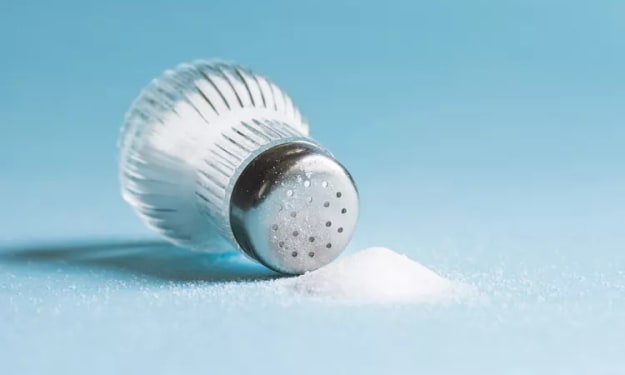
"Doctor, I have a relatively light diet and I'm not fat, but why are my blood lipids still high?"
Mr. Li is 45 years old, and he is usually in good health. However, two days ago, he was found to have hyperglycemia during a medical checkup. Considering that he usually eats lightly and is not fat, he couldn't understand why his blood lipids were high. To find out the reason, he asked the doctor the same question he asked at the beginning of the article.
After hearing Mr. Li's question, the doctor explained that there are many causes of hyperglycemia, including genetic factors, alcohol consumption, and hypothyroidism, in addition to obesity and a high-fat diet. After listening to the doctor's explanation, Mr. Li found it reasonable and did not say anything else.
In real life, there are indeed some people who are not fat and have a light diet, but their blood lipids are just high. What's going on here? To let you have more knowledge and understanding of hyperglycemia, today the doctor good words will talk to you about the relevant knowledge.
1. Why is it that Mr. Li has a light diet and is not fat, but his blood lipids are high?
The first thing you should know is that Mr. Li likes to drink alcohol and his parents also have hyperglycemia.

Little common sense friends should know that the energy of wine is relatively large, and high-degree liquor can also be ignited. If you drink for a long time, it may lead to the intake of energy that can not be metabolized promptly, so the excess energy will be converted into fat storage. At the same time, regular drinking also increases the risk of obesity, which itself is a high-risk factor for hyperglycemia.
Generally speaking, if parents have hyperglycemia, their children have a significantly higher risk of getting hyperglycemia than normal people. Of course, this does not mean that if the parents have hyperglycemia, their children's blood lipids must have problems.
2. A light diet, and not fat, why is the blood lipid is still high? It may be due to the following 3 major reasons!
❶ Too much carbohydrate intake.
Objectively speaking, the food we usually eat, mainly includes three main categories, namely carbohydrates, fats, and proteins.
Many friends think that not eating meat is a light diet, in which case they will eat more staple foods, such as rice, noodles, etc. When a person eats staple foods, they are metabolized into glucose. The amount of glucose stored in the body is relatively small, and the excess glucose will be converted into fat by insulin. If you consume too many carbohydrates every day, then it will lead to high blood lipids. Some friends prefer to drink thin rice, and thin rice because of the high hypoglycemic index, so often drinking thin rice is also more likely to cause hyperglycemia.
At the same time, many friends to lose weight may replace their main food with fruit. This practice is not scientific and is not conducive to weight loss. This is mainly because many fruits are sweeter nowadays, and the sugar it contains is also relatively high. If you eat too much fruit, it may even be more likely to cause hyperglycemia than eating a staple food.
❷ Certain diseases.
Objectively speaking, many diseases can cause hyperglycemia, such as hypothyroidism, diabetes, nephritic syndrome,Cunning's syndrome, etc.
Take hypothyroidism. These patients have a slow basal metabolic rate because of a lack of thyroid hormones in their bodies. A decreased basal metabolic rate may result in excess energy being converted into fat, which in turn increases the risk of hyperglycemia.
For patients with hyperglycemia, if they develop persistent hyperglycemia, then they need to be ranked to see if certain diseases are at play.
❸ Long-term use of certain medications.
In real life, many drugs may affect lipid metabolism and thus cause hyperglycemia. These drugs mainly include hydrocortisone, beta-blockers (such as meteorology), thiamine diuretics, etc.
Many people have certain diseases after they have to take some drugs for a long time. In the long term, it is easy to mothball and cause epidemically.
For such patients, try to switch to other drugs. If there is no suitable drug, then you can temporarily choose a suitable treatment plan with the help of your physician.
3. What should we do when hyperglycemia is detected?
❶ Try to find out the cause of hyperglycemia.
Once hyperglycemia is detected, the first thing you should do is to find out the cause of hyperglycemia, and then treat the cause.
Many people who have hyperglycemia take lipid-lowering drugs right after they get it, but there are some problems with this. If hyperglycemia is due to a certain disease, then taking lipid-lowering drugs directly may delay treatment.
❷Adhere to a light diet.

A light diet is not something you don't eat here or there, but a balanced diet with a lighter taste.
When eating, the daily intake of salt should be limited to 6 g, and the daily intake of fats and oils should be limited to 25-30 g. You can increase the intake of high-quality protein, vegetables, and fruits, and the common high-quality protein mainly includes fish, shrimp, eggs, and beef.
When making food, try to adopt cooking methods such as steaming, boiling, stewing, braising, and simmering, and try not to fry or deep-fry food.
❸ Adhere to exercise.
Exercise not only strengthens your body but also consumes more energy, so it is good for lowering blood lipids.
It should be noted here that exercise needs to be adhered to for a long time to have obvious results, otherwise it won't work to fish for three days and sunbathe for two days.
The specific type of exercise you choose can be based on your situation. However, for the elderly and obese, walking is safer and easier to adhere to exercise, o for them, walking can be the preferred way of exercise.
The time and frequency of exercise need to meet certain requirements before good results can be achieved. The duration of each exercise should be controlled at about 30 minutes, and the number of exercises should be no less than 5 times a week. The amount of exercise is not greater the better, to not feel fatigued the next day, otherwise too tired will reduce the body's immunity.
❹ Other.
To control your blood lipids, you should also pay attention to eating seven minutes full, quit smoking and drinking, control your weight within the normal range, review your blood lipids regularly, maintain an optimistic mindset, eat as little or no animal offal as possible, and try not to drink.






Comments
There are no comments for this story
Be the first to respond and start the conversation.